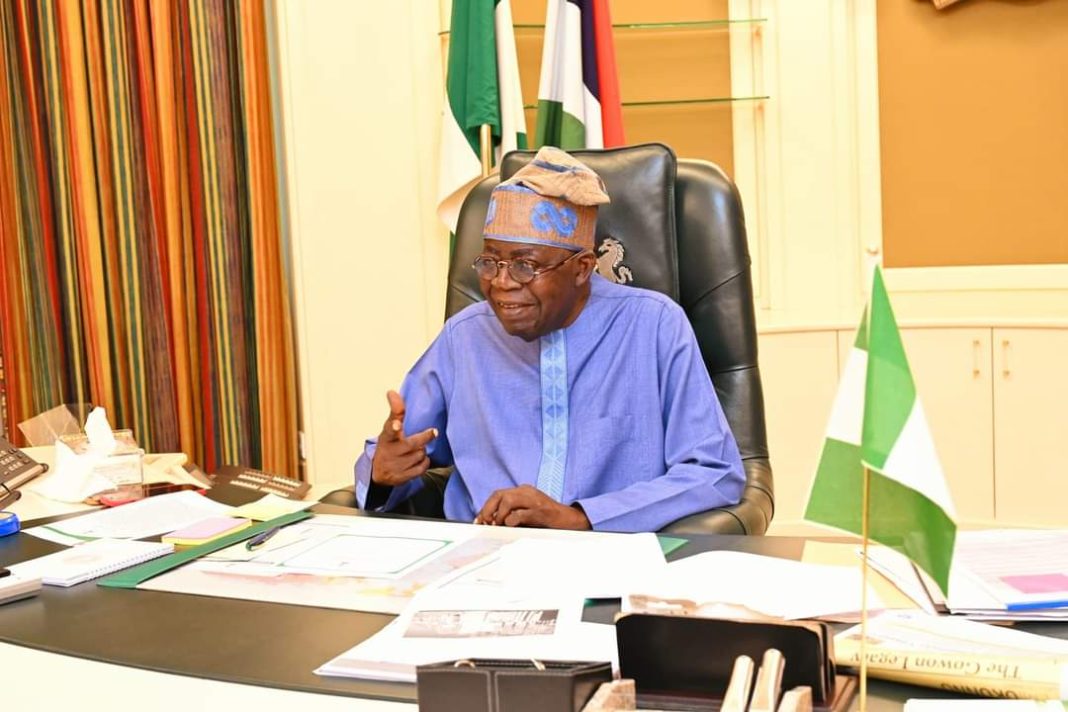President Bola Ahmed Tinubu has reaffirmed his administration’s dedication to openness and fiscal restraint, announcing that the proceeds from the elimination of fuel subsidies are being put back into important sectors to promote equitable growth and restore public confidence.
At the National Conference on Public Accounts and Fiscal Governance, which was organized by the Senate and House of Representatives Public Accounts Committees (PACs), President Tinubu said that the decision to eliminate the fuel subsidy was tough but necessary to realign the country’s fiscal priorities. He made this statement through Minister of State for Finance Dr. Doris Nkiruka Uzoka-Anite.
Fuel subsidies cost Nigeria more than ₦4 trillion in 2022, surpassing our capital expenditures for the same year. According to Tinubu, such a budgetary route was unjust and unsustainable, favoring the wealthy, promoting cross-border smuggling, and creating systemic inefficiencies.
The subsidy’s removal, he said, has freed up funds that are now being used for essential infrastructure development, targeted economic projects, increased social protection programs, and public transit upgrades.
Crucially, we have strengthened our fiscal buffers, making Nigeria more resilient to shocks to the global economy,” he continued.
According to Tinubu, fiscal governance is the “foundation of national growth.” He emphasized the significance of openness, responsibility, and responsible resource management, saying that a country’s riches is meaningless without these principles.
Despite acknowledging past fiscal inefficiencies and reliance on oil revenue, the president expressed optimism about Nigeria’s future by highlighting recent tax system legislative reforms aimed at streamlining procedures, digitizing revenue collection, expanding the tax base, and enhancing business ease.
“Our national transformation is centered around these tax measures, which go beyond simple administrative adjustments. We are constructing an independent, diverse economy that isn’t dependent on oil alone,” he stated.
Tinubu emphasized strategic areas that he claimed were now reaping the benefits of fresh investments and reform-driven attention, including mining, manufacturing, technology, agriculture, renewable energy, and the creative sector.
He added that the recently established National Credit Guarantee Company is a tool to help small and medium-sized businesses (SMEs), increase domestic production, and promote exports that aren’t oil.
About monetary policy, Tinubu praised the Central Bank of Nigeria’s (CBN) efforts to stabilize the naira and reduce inflation, pointing out that monetary and fiscal authorities were working together more effectively.
Citing the digitization of public financial management through platforms like as IPPIS, GIFMIS, and the Open Treasury Portal as instruments to improve accountability, he reaffirmed that government transparency is an unavoidable requirement.
These tools allow citizens to obtain real-time financial data, hold public leaders responsible, and keep tabs on public spending. We need to be more transparent instead of opaque,” he emphasized.
Reminding the National Assembly that supervision is a constitutional duty and not a partisan tool, the president urged them to carry out their oversight responsibilities with independence and honesty.
Each naira must represent the value of money. He proclaimed, “The interests of the people must be served by budgets.”
Along with encouraging citizen participation in governance, he urged the judiciary, civic society, and media to take an active role in calling for budgetary restraint.
Concerned About Increasing Legal Non-Compliance, Akpabio
Sen. Abdul Ningi, speaking on behalf of Senate President Godswill Akpabio, cautioned against the increasing disdain for legislative summonses by public officials and agencies and urged PACs to uphold their constitutional obligations under Sections 80, 81, and 88 of it.
“PACs can call anyone to explain how public funds are being used.” The rule of law is undermined and democracy is directly insulted when people refuse to come before them, Akpabio stated.
He chastised MDAs for their increasing disregard for monitoring and called on PACs to reaffirm their importance by in-depth research and value-based evaluations of funding.
When it comes to complicated organizations like the central bank, NNPC Limited, and FIRS, Akpabio advocated for better technical assistance and digital tools to assist lawmakers in addressing oversight issues.
He stated, “This conference needs to go beyond rhetoric and provide lawmakers with practical plans to improve fiscal governance.”
Abbas Issues a Warning About More Than N300 Billion in Unrecovered Public Money
Representing himself through House Leader Julius Ihonbvere, Speaker of the House of Representatives Rt. Hon. Abbas Tajudeen criticized Nigeria’s inadequate audit enforcement, revealing that more than ₦300 billion in audit queries are yet unanswered.
It is imperative that this culture of ignoring audit recommendations change. For financial violations, there must be repercussions,” he stated.
According to him, the House has moved from passive review to active enforcement, implementing follow-up procedures, digitizing audits, and providing real-time tracking tools to guarantee MDA compliance.
Abbas underscored the House’s endeavors to streamline audit reports for public comprehension and involvement, saying, “Fiscal oversight is no longer a formality, it’s a strategic tool for national development.”
Along with highlighting the necessity of ongoing oversight of budget implementation beyond authorization, the speaker promoted a single national audit mechanism to guarantee accountability at all governmental levels.
“We are instituting a culture of impact-based fund assessments, sectoral audits, and performance reviews,” he continued.
Wadada Calls for an End to Fiscal Ignorance
Calling for a national recommitment to fiscal integrity, Senator Ahmed Wadada, the chairman of the Senate Public Accounts Committee, emphasized that the country has been denied crucial development due to the mismanagement of public funds.
Read Also: WSIS: NCC’s Digital Awareness Programme Wins 2025 Prize for Access to Information and Knowledge
“Fiscal governance is the moral compass of public service; it establishes whether revenues result in opportunities lost or prosperity gained,” he stated.
The Senate PAC has increased monitoring, held public hearings, and engaged stakeholders to promote financial transparency, according to Wadada, who cited a recent Auditor-General report that revealed accountability deficiencies in many departments.
He also promised that in order to put an end to financial malfeasance, the 10th Senate, led by Akpabio, would examine antiquated fiscal legislation and strengthen cooperation amongst government branches.
Salam Demands Comprehensive Fiscal Reforms
The necessity of a comprehensive reform of Nigeria’s fiscal structure was emphasized by Hon. Bamidele Salam, the chairman of the House Public Accounts Committee.
According to him, the conference, which is called “Fiscal Governance in Nigeria: Charting a New Course for Transparency and Sustainable Development,” has to produce tangible changes rather than just grandiose statements.
Salam stated that it is imperative to establish a culture in which public funds are viewed as a public trust rather than a private privilege.
He underlined the significance of citizen participation in budgeting and governance procedures and the strain that the nation’s public finance system faces due to population expansion, high young unemployment, and infrastructure deterioration.
Although Salam praised the advancements made under Tinubu’s Renewed Hope Agenda, he emphasized the necessity of improved financial reporting, auditing procedures, and conformity with constitutional requirements.
AFROPAC Applauds Nigeria’s Fiscal Reform Leadership
Nigeria has been praised by Hon. Medard Lubega Sseggona, President of the African Organization of Public Accounts Committees (AFROPAC), for being a continental model for budgetary accountability and openness.
A strong commitment to sustainable development and responsible financial management is demonstrated by the conference, he said.
The leading role that Nigeria has played in bolstering public financial management in Africa is affirmed by this forum. According to him, it is a praiseworthy step in the direction of establishing accountability-driven governance throughout the continent.



